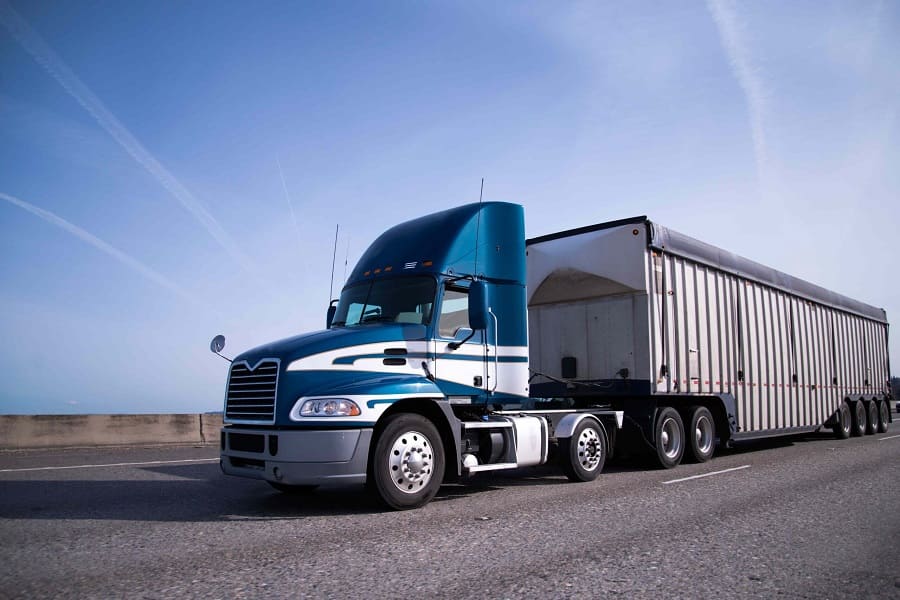Business — Everything You Need to Know
Starting any new business is both hugely exciting and a great leap into the unknown, and the vehicle transport business is no different. Obviously, a basic knowledge of the industry is an absolute must for those looking to enter what is a very competitive field, but even for those who have worked in the transport game for a long time, setting up on their own in an industry they love can still be a potential minefield.
On the plus side, the experience will definitely count in your favor when starting a vehicle transport company. With insider knowledge, you’ve already leveled the playing field. But be warned — the process of taking an idea off a drawing board and making it a reality takes serious planning and a lot of blood, sweat, and tears.
Yet fortune favors the brave, and rest assured, there is — and will be for a long time to come — a huge demand for a reliable and effective vehicle transport company that doesn’t promise the earth but delivers the goods realistically and affordably every single time.
Here at Logity Dispatch, we value the integral importance a vehicle transport business plays in keeping society firing on all cylinders and the economy in great shape. We have worked with some of the best in the field and are keen to help individuals who wish to start a car transport business, and to make the secure transportation of cars and vehicles from ‘A’ to ‘B’ as cost-effective, secure, and reliable as possible.
As specialists in the industry, we have seen the common mistakes and textbook errors that starting a vehicle transport business tend to make. With this in mind, we would like to offer our top tips on how to start a car transport business and make it a viable success.

Identify the Need
Before embarking upon any business venture, you need to ensure there is a gap in the market that your vehicle business can exploit. Study and research the transport sector and potential competitors to identify any shortcomings.
Ask yourself:
- What areas are they specializing in?
- How much do they charge?
- What is their geographical range, and who is their target audience?
- And then the million-dollar question: could my business do any better?
Putting in the legwork at this stage will reap plenty of dividends further down the line. Researching the day-to-day operations of other vehicle transport businesses will help clarify the niche you want to exploit and the demand you want to meet. This will then help you avoid the mistake of attempting to compete in an already saturated market. You can find your state and research local laws here: https://www.usa.gov/states-and-territories.
Fail to Prepare, Prepare to Fail
You’ve checked out the competition. You’ve identified a need. You’ve got an idea, and you’re thinking big and ready to hit the ground running. But wait! A man without a plan is operating blind. So do yourself a favor and take the time to sit down and draw up a business plan laying out what you want to do, how you plan to do it, any potential obstacles that will be thrown your way, and how you’ll overcome them.
When you start a car hauling business, the devil is in the detail. You’ll need an in-depth marketing strategy, comprehensive and long-term financial projections, and a firm idea of what your long-term goals are. Setting down your ideas on paper is a great way to separate the wheat from the chaff, clarify your thought process, and find out what is feasible. It’s a golden opportunity to iron out any potential issues. Remember, what works on paper doesn’t always translate well into reality, so you’ll need to tweak your business plan as circumstances and market forces dictate.
Attract Investment
Unless you’ve won the lottery, inherited a fortune, are closely related to your bank manager, or have a huge pot of cash leftover from a previous investment, then chances are you’re going to need some additional investment when it comes to getting your operation off the ground.
Starting a vehicle transport business is not cheap — you have to consider not only the initial outlay for vehicle costs but other essential overheads such as staff wages, insurance, and marketing as well. A well-thought-out and detailed business plan is key to attracting investors to your cause. You’ll need to convince them you’re a capable and resourceful individual and your business is both plausible and profitable. But if you’ve put together a credible business plan detailing how their investment will one day become a profit, you should have no worries.
Investors come in all shapes and sizes. Friends and family are often happy to lend a helping hand. Yet many in the vehicle transport business prefer to keep it strictly professional and ask a private investor on board in return for a small share of the equity. If you’d prefer to explore another option, then you could apply for a small business grant. It’s a lengthy process, but the payoff is more than worth it.
Get Equipped
Naturally, if you’re planning to start a car hauling business, you’re going to need the right equipment for the job. You mustn’t try to cut corners when it comes to scouting around and picking the right haulers, towing trucks, winches, trailers, and everything else you’ll need to ensure starting a vehicle transport business runs as seamlessly as possible. Everybody loves a bargain, but make sure you shop around for quality products at prices that won’t batter the business’s budget. Talk to those in the know and do your research before making that all-important purchase.
We live in a digital era, so don’t forget that there is some high-grade transport management software on the market that could benefit your vehicle transport company. Such software is invaluable for lending a helping hand to the administrative side of your operations, and it covers everything from mapping routes to tracking mileage and tallying how many hours you spend on the road.
Location is Everything
You’ve put your thinking cap on to write up your plan, you’ve put your bargaining hat on to source your equipment, and now it’s time to put your scout’s hat on and find the best geographical location for your business. First things first, the amount of space you’ll need will be dependent on the size of your fleet and how large your operation is. Remember, you’ll need adequate room for the unloading and loading of any haulers, and you’ll probably want a little space left over if you have any plans for future expansion.
Secondly, the choice of the exact geographical location of your vehicle transport business will be dependent on how accessible it is to the major routes and roads that allow you to conduct your business. You’re starting a vehicle transport business after all, and the highways and byways of the modern world will be your lifeblood.
Contact and Connect
Just as no man is an island, when you start a car transport business, you should not do it in complete isolation from other key players in the industry. Networking is the grease that keeps the wheels of commerce spinning around the clock. Everyone at some point needs a mentor, and if you can find someone who’s been there, done it, and brought the t-shirt with the legend ‘how to start a car hauling business’ emblazoned upon it, then don’t be shy about enlisting their help and expertise.
Additionally, reach out to anyone who works within the transport sector and see if you can come to a mutually beneficial arrangement. Social media is a great way to network, meet others, and learn from their experience. Make building your book of contacts and staying connected with as many other businesses as possible a golden rule. Who knows, when the time comes, it might be you that some young start-up comes calling on for a few sage words of advice.
Cover Your Costs
No one likes to talk about insurance, but you will not be able to start a car-hauling business without it. Motor trade insurance ticks all the boxes concerning a vehicle transport business and is an essential safety net for all those little hiccups and unexpected calamities life has a habit of throwing your way. Standard motor trade insurance will take care of your business, your drivers, and your maintenance team. However, you need to have a sit-down conversation with an insurance company so they can assess your personal needs, draw up a few quotes, and find the right plan for you.
License to Thrill
Like anything in life that’s worthwhile and takes a certain degree of expertise, you cannot start a car hauling business without the appropriate licenses. A vehicle transport business is required by law to possess a number of registrations and licenses before it can set up shop. Before you apply for a license, you need to register your business with the appropriate governmental agency. There is a lot of red tape and bureaucracy involved in the process, but the sooner you get the ball rolling, the better.
Prepare Your Papers
Just when you thought the avalanche of paperwork was over, we’ve some more bad news, so brace yourself. You need not only licenses when starting a vehicle transport business but also up-to-date certificates and documentation to get the show on the road. Here’s when you’ll need to definitely get some legal advice.
You’ll require contracts related to transporting vehicles as well as contracts for your employees. Dependent on how far afield you’re planning to operate, you may require international road haulage documents as well. Either way, a legal expert in this area will prove a definite asset when it comes to saving you from wading through unnecessary jargon and getting tripped up by various rules and regulations you didn’t even know existed.
Let the World Know You’ve Arrived
The procedures have all been followed to the letter, the hoops have all been jumped through, the boxes have all been ticked, and the light is on the green when it comes to getting your vehicle transport business on the road. Your company might just be the best thing since sliced bread and what the world has been waiting for, but how’s the world supposed to know if you’re not going to advertise it?
Many individuals who start a car transport enterprise are guilty of overlooking the influence advertising and marketing can have on the success of this business. Don’t join their ranks. Know your niche from the get-go and vigorously target that audience. The printed press has a limited reach nowadays, but it’s still worth placing an advertisement. However, it’s an online presence you should be focusing on if you want some definite bang for your buck.
Social media can work wonders in placing your business in front of the eyes of those people most likely to use it, so do not be afraid to fully exploit the limitless reach of Facebook. With digital marketing platforms such as Google Ads, you can showcase your business to an audience of millions. Likewise, a well-put-together website will make a dynamic first impression on potential customers. The world has moved online, so don’t be afraid to move with it.
And so it looks like we’ve reached the end of the road, but if you adhere to the above tips, it should be the start of a long and exciting journey for your vehicle transport business. All of us here at Logity Dispatch wish you the very best in your endeavor and look forward to working with you at some point in the future.
Now, what are you waiting for? Get your motor running and head out on the highway. Good luck!







